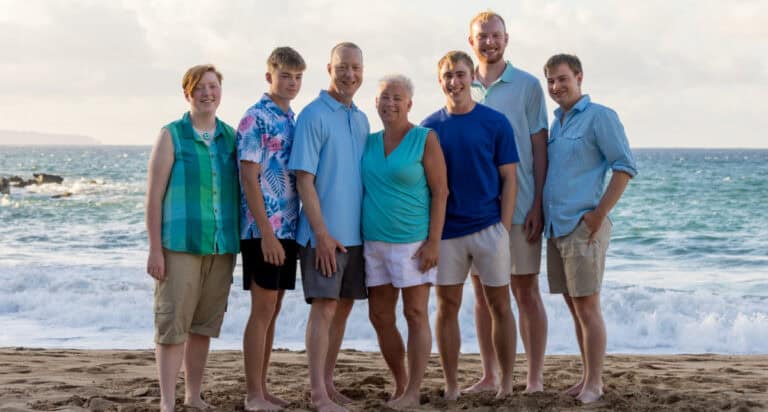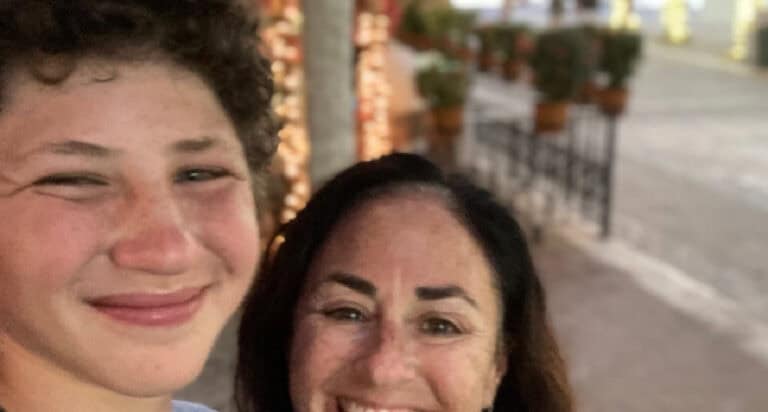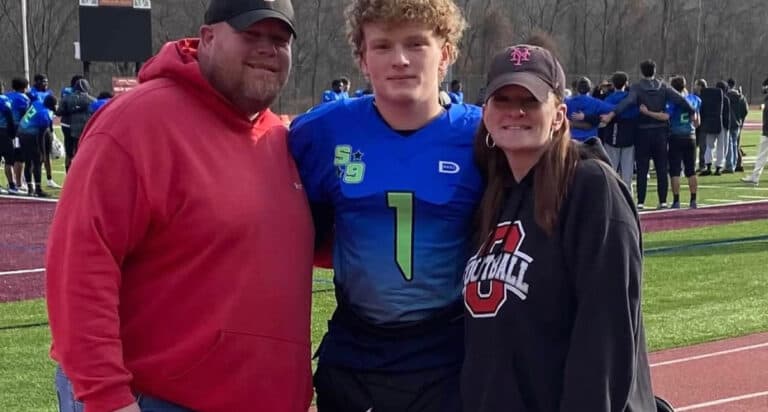I lost my dad 18 years ago and my mother a few weeks shy of her 86th birthday this past March. I always assumed that after losing one parent, you get better at it, more prepared, less blindsided. As if it were a job skill you list on your resume: “lost a parent.” Yet now, on this second go-round with grief, I find that’s not the case.
Each loss is very different, very personal, and has its unique fingerprint. This grief differs from what I experienced when my dad died from a sudden coronary at age 71.

The loss of my mother would sneak up on me when I least expected it
I didn’t see that one coming, so it swept in like a tsunami, drowning me under its powerful waves. This grief is quieter, like an occasional rumbling storm cloud. It doesn’t overwhelm me, but it has a nasty habit of sneaking up when I least expect it.
People comment that I seem to be doing well, which makes me question if I am doing it right, whatever right may be. Am I crying too little? Am I overthinking things too much? Am I doing things the way my mom would have wanted if she was here to call the shots? I’ve learned it’s pointless to try and guess how you will feel when you wake up in the morning. The point is to get up, get out of bed, and live when someone you love isn’t.
At first, it was hard to see beyond my mother’s last days at Mount Sinai. It was a roller coaster of ups and downs, with well-intentioned doctors assuring me they were doing everything possible. “She’s going to be fine, don’t worry,” a cardiologist told me. “We got her.”
In the step-down unit, they made her comfortable and tried to get her to eat and drink, but she was so tired. I anxiously watched the health portal on my phone for results that might explain why she had fallen three times at home, her blood sugar was climbing, and she was in and out of consciousness.
My mother made her own choices and accepted her own death
There were new terms to learn — “toxic metabolic,” “delirium,” and “deep vein thrombosis.” There were tests and more tests and things that didn’t add up. She smiled and told me she was feeling better, and I believed her, maybe a little too eagerly. Two hours later, she closed her eyes and went to sleep, a peaceful, dignified exit for a strong, smart lady who was an elementary school principal and, more importantly, a proud and doting grandma.
She made her choices — even this last — with fierce determination and decisiveness. While the thought of catching Covid or falling and breaking a hip terrified her, she was surprisingly calm and unbothered in the hospital. She accepted this ending long before I was able to.
Six months later, the pain is no longer fresh and raw; it’s more of a dull ache. After you go about the business of death, the paperwork, the religious rituals, the sympathy texts, and the calls of friends and family, an emptiness follows. A “what now?” sensation gnaws at you in that silence. I remember the numbness that marked the days and weeks after my mother’s funeral when no more tears were left to cry.
I am grateful for the time I had with my mother
I know from my dad’s passing that the hole in your heart eventually heals slowly. The time between now and later will seem endless, yet fly by. I know grief has multiple stages — denial, anger, bargaining, depression, and acceptance. But I think I’ve landed on a new one: gratitude.
I am grateful for my time with my mother at her bedside, where I could tell her, “I love you,” and have her respond, “I love you more.” I am grateful for the kindness of doctors, nurses, and social workers who let me repeatedly ask them questions that had no easy answers.
Grief and joy must learn to coexist
Someone once told me (probably my therapist) that grief and joy coexist. I know that’s true because I miss my mother when things make me happy or I laugh out loud. I want to call her and share them — and I can’t. That’s when it knocks the wind out of me. That is when I’m not doing “fine,” although I tell everyone I am. It’s not a lie — it’s just a moment and a fleeting one.
I allow myself to feel it, let the sorrow wrap its arms around me, and then let it go. I have had to do it for both my parents: hug them tight, then let them go. It’s never enough time, not even at 86 years.
The ICU doctor who came to examine my mother was a kind Indian gentleman who believed in honoring that process. “Sometimes they know better than we do when it is time,” he said gently. People don’t tell you that grief also needs to be honored. There is no right or wrong way, timeline, or road map to follow — just a strange but familiar journey back into the light through the darkness.
More Great Reading:









